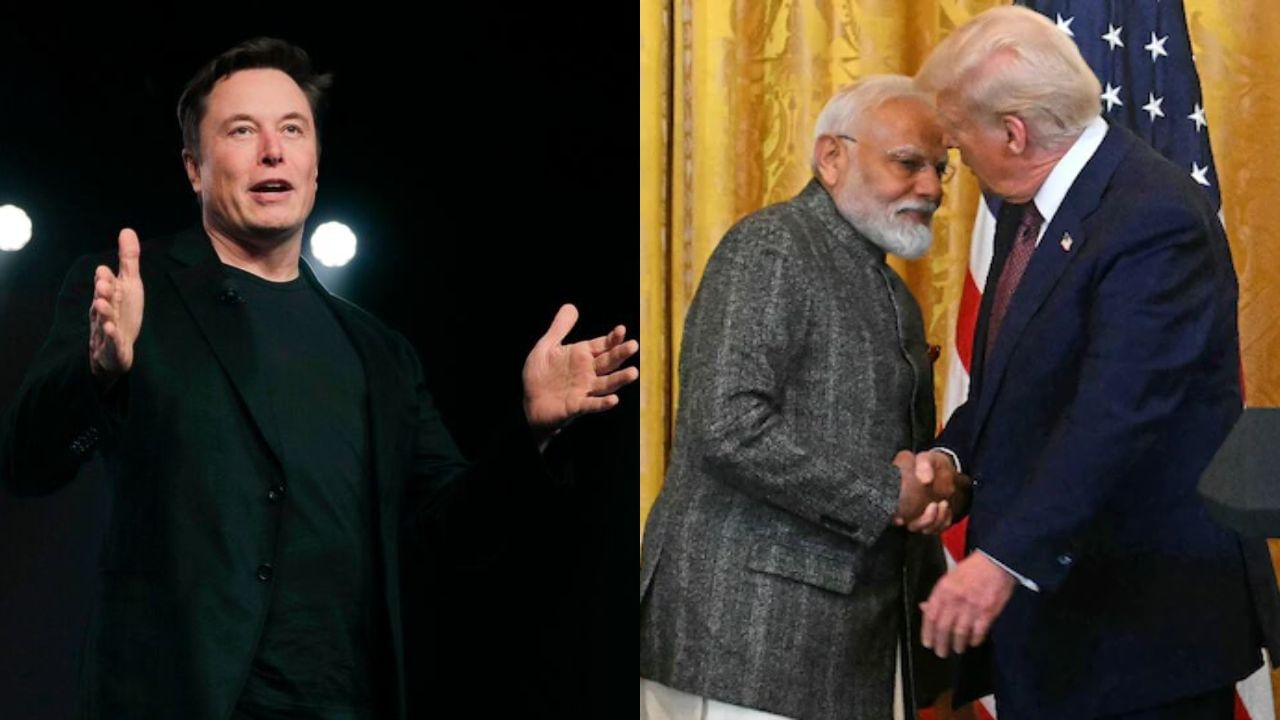Trump’s reciperook tariff is the lowest 26 percent of India in the Asian Region. Whereas Trump’s tariff is very high in countries like China, Pakistan, Bangladesh, Vietnam. Trump has now threatened to impose 50 percent tariff on China. This thing is different. On the other hand, India has imposed tariffs, but not that much. Which has many meanings. India is a market that Europe also needs and China.
America also wants to increase its penetration in this market. In such a situation, Alan Musk, the closest to Trump, wants to make Tesla an entry in India and make a strong player of a big market. So that other markets of Asia can also be moved and the Tesla connection can be cut from China. For this reason, India is also thinking about messing with China. The investment of China’s largest e-auto company BYD has been canceled on behalf of India. So that Tesla’s investment can be brought to India.
Recently, India’s Trade Minister Piyush Goyal said that the BYD company’s market access will be limited, as India wants to invest from Tesla Inc. owned by Allen Musk. Commerce Minister Piyush Goyal said on Monday that India will have to be cautious about its strategic interests, who we allow to invest.
He told Haslinda Amin of Bloomberg Television at the India Global Forum in Mumbai that the investment for Byd is currently forbidden. India rejected the BYD’s 1 billion investment offer with the local partner last year, while another Chinese car maker Great Wall Motor Company also left India after failing to get regulatory approval. Let us also tell you what is the whole matter…
Government suspects on Chinese companies
According to the TOI report, the authorities are worried about the OPEC ownership structure of Chinese firms and their relations with the Communist Government and the Army. There are also concerns related to China’s non-market economy status. Government officials point to policies like subsidy and loan waiver for makers, which some people see as indirect support which distorted competition.
Investigation of investment started through Press Note 3 is still going on. This policy makes it mandatory that all investments from countries sharing border with India will have to get government approval. This gives the government flexibility in determining who can invest. Some government officials suspect that a part of the current effort to make the rules easier is coming from the Chinese companies itself. These companies are not able to expansion due to lack of approval.
Tesla’s quarrel in India
Tesla recently started recruitment in Mumbai. In which recruitment was done for posts from sales and service advisor to customer help experiment and delivery managers. Tesla has also talked about building a showroom in Mumbai and Delhi. Recently, media reports came to seven times that Tesla is initially considering contract manufacturing by using 25 per cent of the headroom in India. The country has a production capacity of 6.2 million units, but capacity usage is only 75 percent. As such, the control of the Tesla supply chain will have to be abandoned, which is likely to affect the production timeline and cost. This is the reason that for the entry of Tesla in new areas, it is necessary to have its own gigafctor.
Tesla’s proposed India unit cost, which has an annual target 500,000 units, is estimated at $ 2-3 billion, much lower than the cost of the Gigafactory in Berlin and Texas, which costs $ 5 billion and $ 7 billion respectively. The cost of cheap land and wages in India will be very helpful in this. The US where the Labor Cost is $ 25-36 per hour and in Germany $ 35-45 per hour. At the same time, the labor cost in India is $ 2-5 per hour. Tesla believes that India’s provision of fee deduction in 2024 EV policy is not as good, so contract manufacturing is being discussed.
How was the journey of electrification in India
India wants to become a global center in EV production, but high entry barriers – up to 2.5 per cent for the US, 10 per cent in Germany and up to 25 per cent in China – as a major interruption. Tesla has kept a distance from India citing high tariffs, while BYD has struggled to get investment approval, while the demand for cheap EV and compact SUV priced below $ 25,000 is increasing.
This is the place where India’s domestic vehicle makers like Tata Motors Limited and Mahindra & Mahindra Limited have got space to flourish. Local wheelly players have opposed any tariff exemption which can allow foreign companies to reduce the price. Especially when the government is increasing incentives on EV production.
